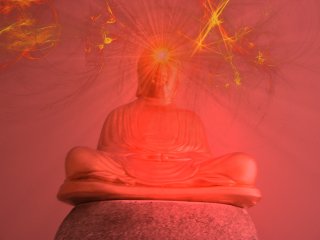His Holiness the Dalai Lama said Friday that secularism is the basis of all religions.This is a very strange comment coming from a man who, in addition to being the spiritual leader of Tibet, is also its temporal leader, at least according to several hundred years of tradition.
Just what does "secularism" mean to the Dalai Lama?
“Secularism does not mean rejection of all religions. It means respect for all religions and human beings including non-believers,” he said speaking to a crowd of 8,000 Japanese and foreigners at Ryogoku-Kokugikan stadium in Tokyo.If this is what he means by "secularism", then secularism certainly isn't a part of any religion with aspirations to political power.
“I am talking to you not as a Tibetan or a Buddhist but as a human being having a friendly discussion and sharing my experiences on the benefits of cultivating basic human values.”If he was talking merely as a human being and not as a leader of Tibetan Buddhism, it is doubtful that eight thousand people would have shown up to hear him speak.
[...]
To a request from the audience to hold the next Kalachakra teachings in Japan, the Dalai Lama said it could be organized if there were sufficient interests among the people.The Kâlachakra Tantra [कालचक्र तन्त्र] and its attendant literature prophesy an apocalyptic war for world domination waged by Muslims, who are defeated by the (Buddhist!) warriors of Shambhala so thoroughly that Islam is completely annihilated. These texts were probably composed during the Islamic invasion of India and reflect the reaction of the Buddhist community to being under constant seige by followers of a hostile religion bent on their destruction.
For more information on this and other controversial aspects of the Kâlachakra teachings, see, for example:
- Critical Forum Kalachakra
- The Berzin Archives: Holy Wars in Buddhism and Islam
- Think Buddha: On Holy Books
南無阿彌陀佛

No comments:
Post a Comment